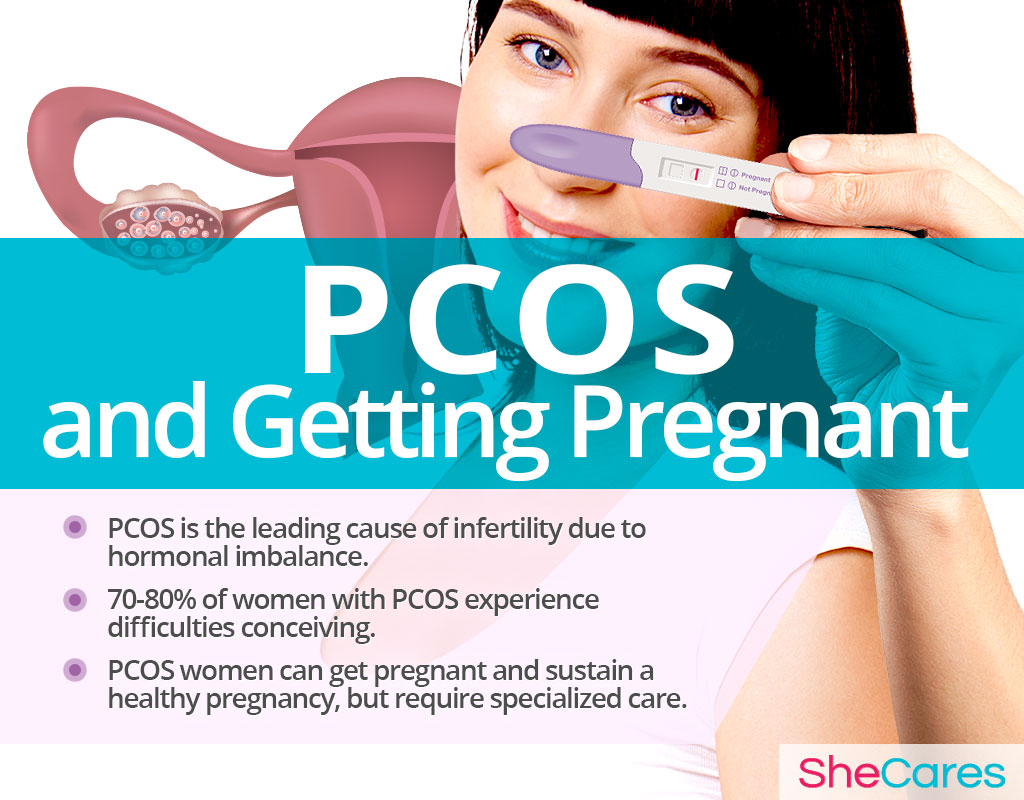Brief Overview of Polycystic Ovary Syndrome
PCOS, sometimes abbreviated PCOD, is an endocrine and metabolic disorder caused by hormonal imbalance. Women with polycystic ovaries have higher levels of androgens, commonly called male hormones, resulting in menstrual abnormalities and excess facial and body hair growth.
The exact causes of PCOS are not known, but certain factors, such as genetics or high insulin levels might play a role. Obesity is a significant risk factor for polycystic ovarian syndrome, and studies have found that over 60% of PCOS women are obese and suffer from insulin resistance.
Effects of PCOS on Pregnancy
Effects of PCOS on Fertility
Polycystic ovary syndrome can lead to infertility due to:
Anovulation, which is absence of ovulation because of the inhibited growth and release of an egg from the ovaries.
Menstrual cycle irregularities, including absent or irregular periods and dysfunctional uterine bleeding.
Cysts in the ovaries, which might lead to overproduction of androgens and cause infertility.
Effects of PCOS on the Mother and Baby
Babies born to mothers with PCOS are often very big, a condition called macrosomia, which often warrants a Cesarean section delivery and puts them at risk for injuries during birth, such as shoulder dystocia. They are also more likely to be treated in a neonatal intensive care unit.
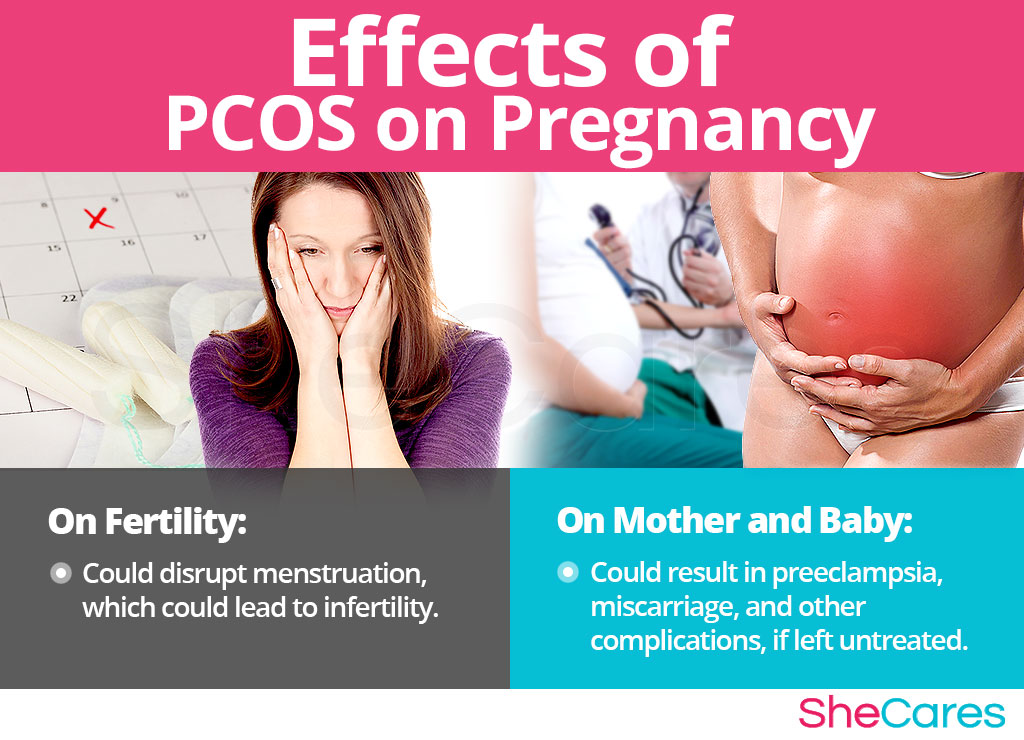
Risks and Complications
Uncontrolled PCOS might lead to miscarriage, preeclampsia, gestational diabetes, and congenital abnormalities.
Action Plan
Treat PCOS before Pregnancy
Your goal in preconception is to regulate hormonal imbalance and restore ovulation with the following lifestyle habits:
Healthy Diet
A wholesome, balanced diet will help you reach a healthy weight, maintain proper insulin and glucose levels, and nourish all your body's systems. Remember to include:
Foods rich in phytoestrogens to help you stabilize hormones and enhance fertility, such as flax seeds, whole grains, and broccoli
Foods high in fiber, which decrease insulin resistance and reduce PCOS symptoms, such as kiwi, pears, and leafy green veggies
Foods with anti-inflammatory properties, such as tomatoes, berries, and ginger
Foods with omega-3 fatty acids to lower androgen levels and regulate menstruation, such as low-mercury fish, such as salmon, and nuts
Healthy fats to regulate hormones and increase fertility, such as avocado, nuts, and sacha inchi oil
Lean protein to stabilize hormones and enhance ovulation, such as chicken, turkey, and eggs
Adequate Exercise
Along with a healthy diet, a moderate-level physical activity 5 times a week for 30 minutes can promote weight loss, reduce stress, and strengthen your core muscles, all of which can greatly improve your fertility with PCOS.
- Some great examples for low-impact exercises include swimming, brisk walking, and dancing.
Vitamins and Supplements
Prenatal vitamins with folic acid can prevent fetal neural tube defects and support pregnancy.
Hormone regulating supplements, such as Macafem, can stabilize hormones and boost your libido.
Vitamins B, D, and calcium supplements are needed for proper development of egg and optimal fertility.
Inositol supplements can help resolve hormonal imbalance and improve egg quality and menstruation.
Medical Treatment
Sometimes medications or surgery are necessary in order to stimulate follicles in the ovaries to undergo a full ovulation.
Good Habits
Quit your addictions to tobacco and alcohol as they might lower your chances of getting pregnant and cause birth defects.
Track your menstrual cycle to estimate your ovulation and fertile window.
- Stay organized and thorough; this will make you feel in control.
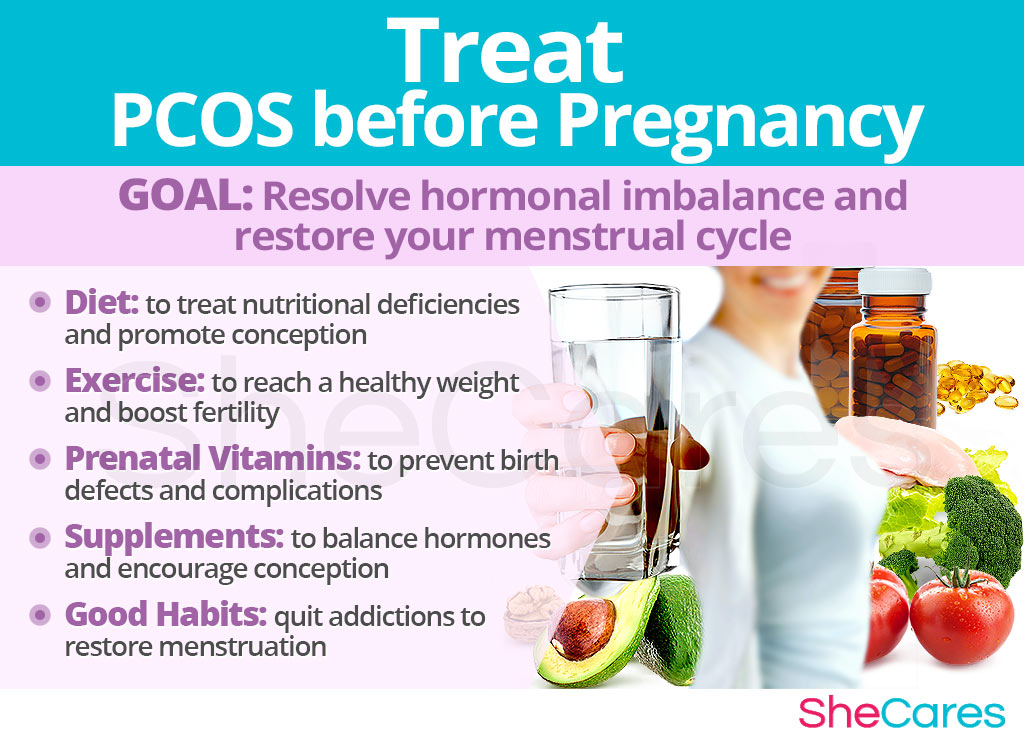
Tips for Conceiving with PCOS
Have sex four to five days before you ovulate and on the day of ovulation to increase your chances of conceiving.
Prevent stress accumulation, anxiety, or depression by finding a new hobby, doing sports, such as yoga, or meditating.
Boost your ovulation by following a fertility diet, composed of full-fat dairy and eggs.
Some women with PCOS consider fertility treatment, such as in-vitro fertilization (IVF), if they continue having problems getting pregnant naturally.
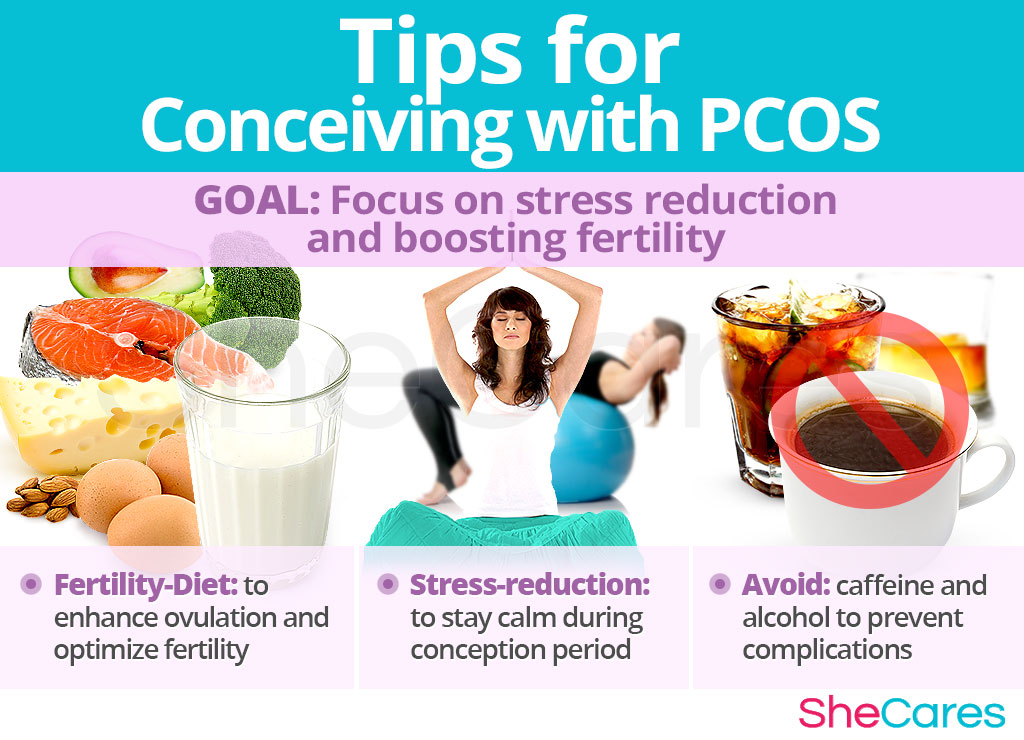
Manage PCOS during Pregnancy
Being pregnant with PCOS makes your pregnancy high risk, which requires frequent doctor's check-ups and monitoring. Remember to:
Prevent excess weight gain during pregnancy by adding only extra 300 calories a day during your pregnancy.
Continue with low impact exercises to help your body support a growing baby with more ease.
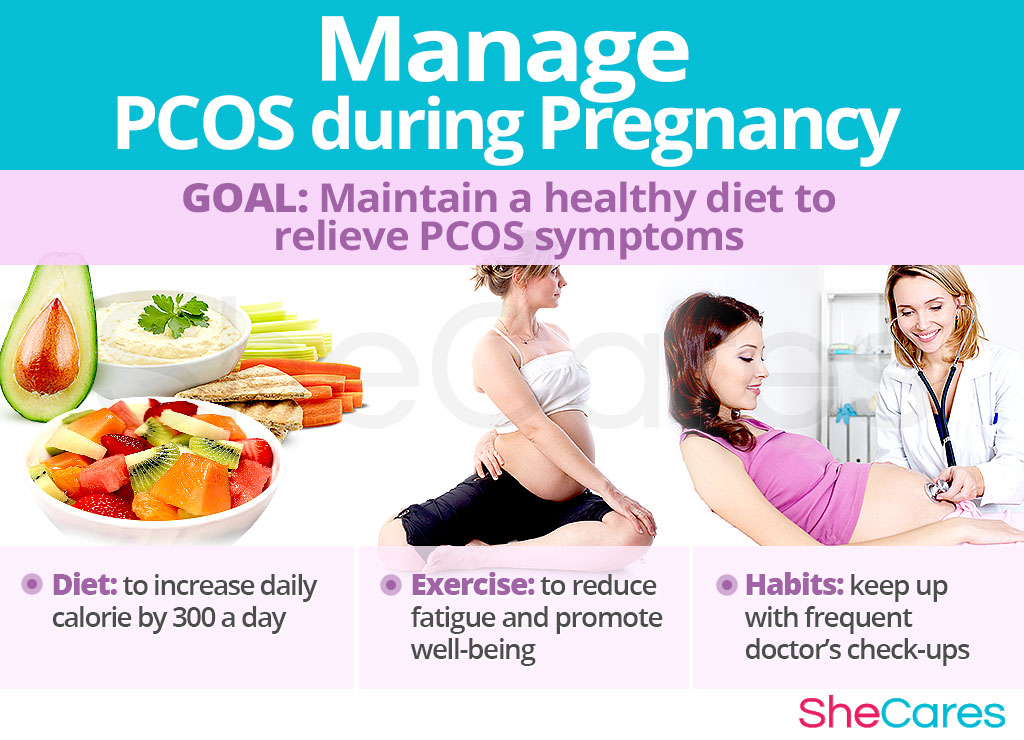
Key Takeaways
Although polycystic ovary syndrome and pregnancy can be stressful topics for some women, many of them go on to give birth to healthy babies and have their own pregnancy success stories to share. Dedication and commitment to preconception goals, such keeping a well-balanced diet, exercising, and taking supplements, such as Macafem, can not only significantly increase your chances of getting pregnant with PCOS, but also decrease the risk of serious complications. Start implementing these effective practices today and put your first step towards become a mom with PCOS.
Sources
- Asian Journal of Sports Medicine. (2010). The Effect of Exercise in PCOS Women Who Exercise Regularly. Retrieved December 19, 2017 from https://www.ncbi.nlm.nih.gov/pmc/articles/PMC3289164/
- Clinics. (2015). Treatment of infertility in women with polycystic ovary syndrome: approach to clinical practice. Retrieved December 18, 2017 from https://www.ncbi.nlm.nih.gov/pmc/articles/PMC4642490/
- Fertility and Sterility. (2006). Role of diet in the treatment of polycystic ovary syndrome. Retrieved December 18, 2017 from https://www.ncbi.nlm.nih.gov/pubmed/16500338
- Indian Journal of Endocrinology and Metabolism. (2013). Pregnancy in polycystic ovary syndrome. Retrieved December 18, 2017 from https://www.ncbi.nlm.nih.gov/pmc/articles/PMC3659904/
- Journal of Medicine and Life. (2008). Insulin resistance and fertility in polycystic ovary syndrome. Retrieved December 18, 2017 from https://www.ncbi.nlm.nih.gov/pmc/articles/PMC3018970/
- Nutrition and Metabolism. (2005). The effects of a low-carbohydrate, ketogenic diet on the polycystic ovary syndrome: a pilot study. Retrieved December 18, 2017 from https://www.ncbi.nlm.nih.gov/pubmed/?term=The+effects+of+a+low-carbohydrate%2C+ketogenic+diet+on+the+polycystic+ovary+syndrome%3A+a+pilot+study
- PCOS Awareness Association. (n.d.). PCOS Pregnancy and Delivery Complications. Retrieved December 18, 2017 from http://www.pcosaa.org/pcos-pregnancy-and-delivery-complications/
- Reproductive Biology and Endocrinology. (2010). Pregnancy outcome in women with polycystic ovary syndrome comparing the effects of laparoscopic ovarian drilling and clomiphene citrate stimulation in women pre-treated with metformin: a retrospective study. Retrieved December 18, 2017 from https://www.ncbi.nlm.nih.gov/pmc/articles/PMC2885401/
- Women's Health. (2017). Polycystic ovary syndrome. Retrieved December 18, 2017 from https://www.womenshealth.gov/a-z-topics/polycystic-ovary-syndrome
